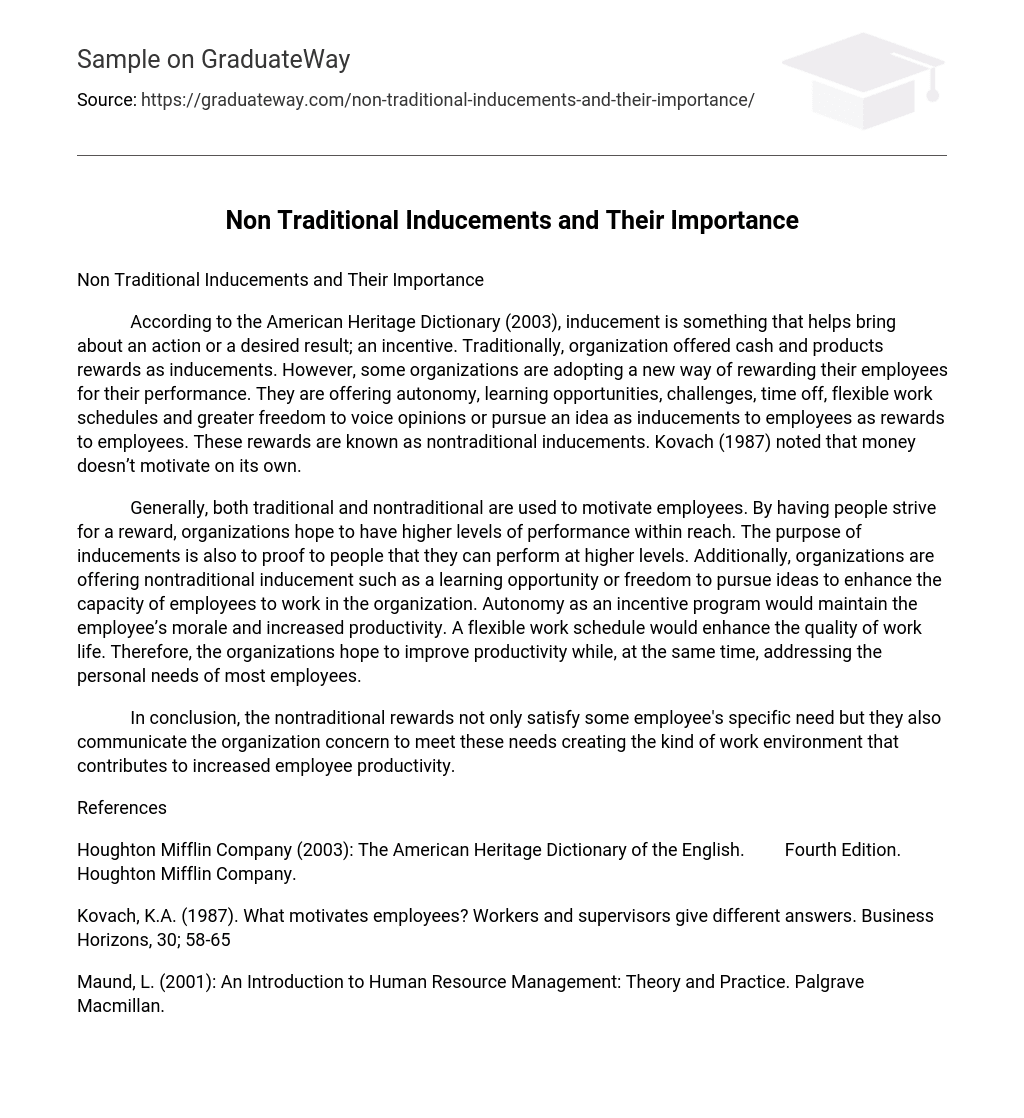According to the American Heritage Dictionary (2003), inducement is something that helps bring about an action or a desired result; an incentive. Traditionally, organization offered cash and products rewards as inducements. However, some organizations are adopting a new way of rewarding their employees for their performance. They are offering autonomy, learning opportunities, challenges, time off, flexible work schedules and greater freedom to voice opinions or pursue an idea as inducements to employees as rewards to employees. These rewards are known as nontraditional inducements. Kovach (1987) noted that money doesn’t motivate on its own.
Generally, both traditional and nontraditional are used to motivate employees. By having people strive for a reward, organizations hope to have higher levels of performance within reach. The purpose of inducements is also to proof to people that they can perform at higher levels. Additionally, organizations are offering nontraditional inducement such as a learning opportunity or freedom to pursue ideas to enhance the capacity of employees to work in the organization. Autonomy as an incentive program would maintain the employee’s morale and increased productivity. A flexible work schedule would enhance the quality of work life. Therefore, the organizations hope to improve productivity while, at the same time, addressing the personal needs of most employees.
In conclusion, the nontraditional rewards not only satisfy some employee’s specific need but they also communicate the organization concern to meet these needs creating the kind of work environment that contributes to increased employee productivity.
References
Houghton Mifflin Company (2003): The American Heritage Dictionary of the English. Fourth Edition. Houghton Mifflin Company.
Kovach, K.A. (1987). What motivates employees? Workers and supervisors give different answers. Business Horizons, 30; 58-65
Maund, L. (2001): An Introduction to Human Resource Management: Theory and Practice. Palgrave Macmillan.
;





